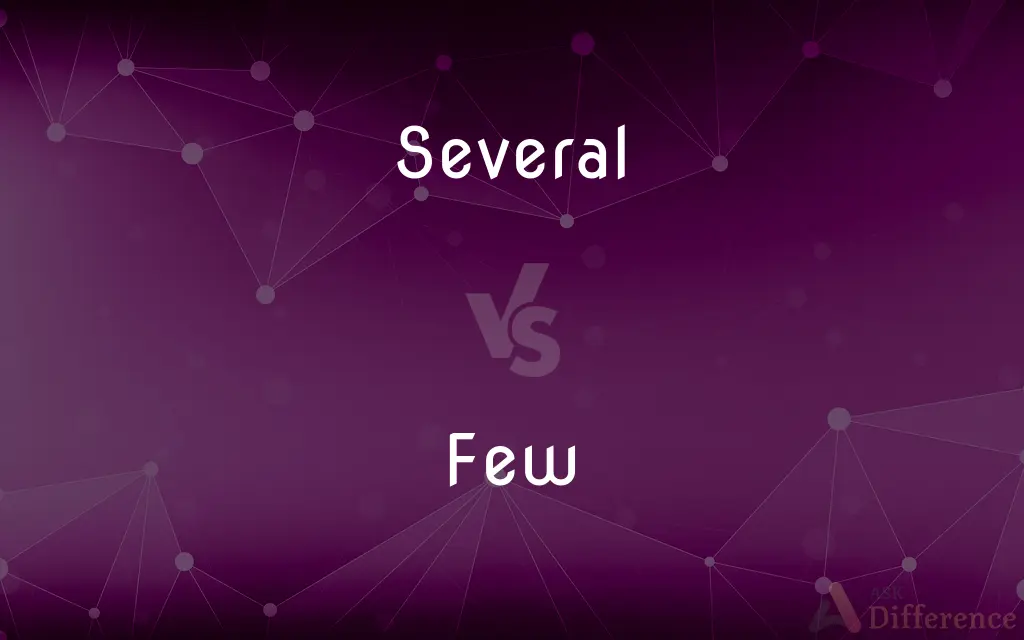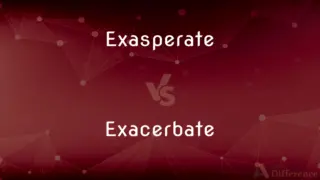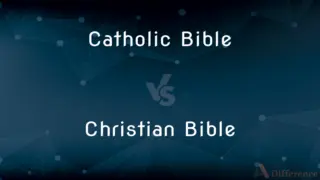Several vs. Few — What's the Difference?
By Tayyaba Rehman & Fiza Rafique — Updated on February 29, 2024
"Several" implies a number greater than two but not many, suggesting a small, indefinite amount. "Few" indicates a smaller quantity, often closer to three, highlighting scarcity or limitation.

Difference Between Several and Few
Table of Contents
ADVERTISEMENT
Key Differences
"Several" is used to describe a number that is more than a couple but not a large amount, indicating a modest quantity. It's often used when the exact number is unknown or unimportant, but it's understood to be more than just a few. On the other hand, "few" signifies a smaller quantity, closer to the idea of "not many." It carries a nuance of scarcity or insufficiency, suggesting that the amount is less than desired or expected.
When someone says they have several options, it implies they have enough choices to consider, without specifying how many. When someone mentions they have a few options, it might imply limitation or a sense of being constrained in choice.
"Several" often carries a neutral or slightly positive connotation, suggesting an adequate or satisfactory quantity, "few" tends to have a negative or limiting connotation, indicating not as much as would be preferred. This difference in nuance can affect the listener's perception of the situation being described.
The use of these terms can also vary based on context and speaker intention. In some cases, "several" might be used to emphasize abundance or sufficiency, whereas "few" might be used to highlight scarcity or the need for more.
Despite their differences, both terms are used to indicate an unspecified, small number. The choice between "several" and "few" can subtly change the meaning conveyed, making it important to choose the word that best fits the intended implication.
ADVERTISEMENT
Comparison Chart
Numerical Range
More than two, but not many
Closer to three, indicating a smaller quantity
Connotation
Neutral or slightly positive, suggesting adequacy
Negative or limiting, suggesting scarcity
Contextual Usage
Indicates a modest but unspecified number
Indicates a smaller number, often seen as insufficient
Speaker Intention
To imply a modest amount without being specific
To emphasize scarcity or limitation
Perception Impact
Can suggest sufficiency or a reasonable amount
Often highlights insufficiency or desire for more
Compare with Definitions
Several
Implying a variety.
She brought several types of cake.
Few
Closer to three, a small quantity.
I need a few minutes to finish.
Several
More than a couple but not many.
She visited Paris several times last year.
Few
Not many but more than one.
He has a few friends in the city.
Several
A small, indefinite number.
Several of the guests were late.
Few
Indicating scarcity.
There are few options left.
Several
Not specific but more than a few.
Several options are available.
Few
Less than several but more than a couple.
A few days ago, I received a letter.
Several
A few more than two.
I've read several of his articles.
Few
A small number of.
Only a few people showed up to the meeting.
Several
Being of a number more than two or three but not many
Several miles away.
Few
Amounting to or consisting of a small number
One of my few bad habits. See Usage Note at less.
Several
Respectively different; various
They parted and went their several ways.
Few
Being more than one but indefinitely small in number
Bowled a few strings.
Several
Consisting of a number more than two but not very many.
Several cars were in the parking lot.
They had many journals. I subscribed to several.
Several of the members were absent.
Few
An indefinitely small number of persons or things
A few of the books have torn jackets.
Several
Persons oe objects, more than two, but not very many.
Several of them neither rose from any conspicuous family, nor left any behind them.
Few
Few people, few things.
Many are called, but few are chosen.
Several
An inclosed or separate place; inclosure.
They had their several for heathen nations, their several for the people of their own nation.
Few
A small elite group;
It was designed for the discriminating few
Several
Considered individually;
The respective club members
Specialists in their several fields
The various reports all agreed
Several
Distinct and individual;
Three several times
Several
(used with count nouns) of an indefinite number more than 2 or 3 but not many;
Several letters came in the mail
Several people were injured in the accident
Common Curiosities
Can "few" ever be positive?
While "few" often carries a negative connotation, it can be positive in contexts where scarcity is valued, such as in exclusive offers.
Can "few" and "a few" be used interchangeably?
"Few" and "a few" are similar but not always interchangeable; "a few" tends to have a slightly more positive connotation.
Are "several" and "few" quantitative or qualitative terms?
They are qualitative terms, providing a sense of quantity without specifying an exact number.
Does "several" mean more than "few"?
Yes, "several" generally implies a larger quantity than "few," suggesting more than a couple but not a large number.
How does context affect the use of "several" and "few"?
Context significantly impacts their use; "several" can suggest adequacy in one scenario and excess in another, while "few" can imply scarcity or selectiveness.
Does the negative connotation of "few" always apply?
Not always; the connotation can vary based on context and speaker intention, though it often suggests limitation.
How do "several" and "few" compare to "some"?
"Some" is more ambiguous and can be used in contexts where the quantity is not only small but also unspecified; it's less specific than both "several" and "few."
Is "several" used more in positive or negative contexts?
"Several" is typically used in more neutral or positive contexts, indicating a satisfactory amount.
Is "several" specific in quantity?
No, "several" is not specific and can vary based on context, but it is understood to be more than two.
Can "few" imply exclusivity?
Yes, in contexts where scarcity is valued, "few" can imply exclusivity or special status.
Can "several" be used to indicate diversity?
Yes, "several" can imply variety or diversity, as in having several types of something.
Is it correct to use "few" to imply dissatisfaction?
Yes, "few" can be used to imply dissatisfaction or a desire for more, highlighting scarcity.
How does audience perception affect the use of "several" vs. "few"?
Audience perception can significantly affect interpretation; what is considered "several" or "few" can vary based on expectations and cultural norms.
Can "several" and "few" be subjective?
Yes, their interpretation can be subjective and vary based on individual perception and context.
Can "several" and "few" be used in formal writing?
Yes, both can be used in formal writing, but their ambiguity may require clarification depending on the precision needed in the context.
Share Your Discovery

Previous Comparison
Exasperate vs. Exacerbate
Next Comparison
Tuberosity vs. TubercleAuthor Spotlight
Written by
Tayyaba RehmanTayyaba Rehman is a distinguished writer, currently serving as a primary contributor to askdifference.com. As a researcher in semantics and etymology, Tayyaba's passion for the complexity of languages and their distinctions has found a perfect home on the platform. Tayyaba delves into the intricacies of language, distinguishing between commonly confused words and phrases, thereby providing clarity for readers worldwide.
Co-written by
Fiza RafiqueFiza Rafique is a skilled content writer at AskDifference.com, where she meticulously refines and enhances written pieces. Drawing from her vast editorial expertise, Fiza ensures clarity, accuracy, and precision in every article. Passionate about language, she continually seeks to elevate the quality of content for readers worldwide.













































